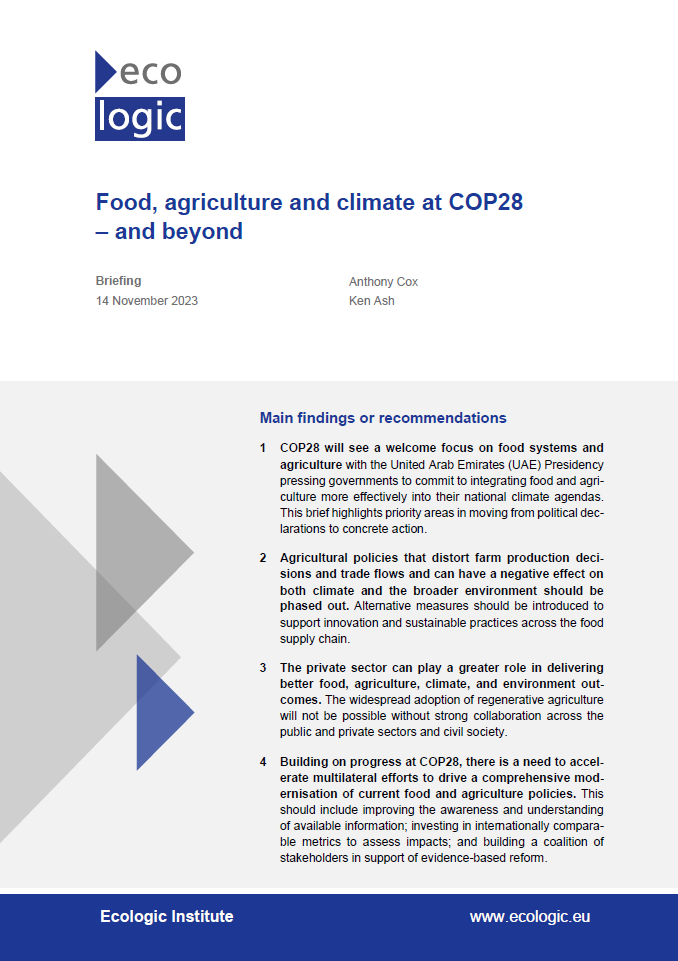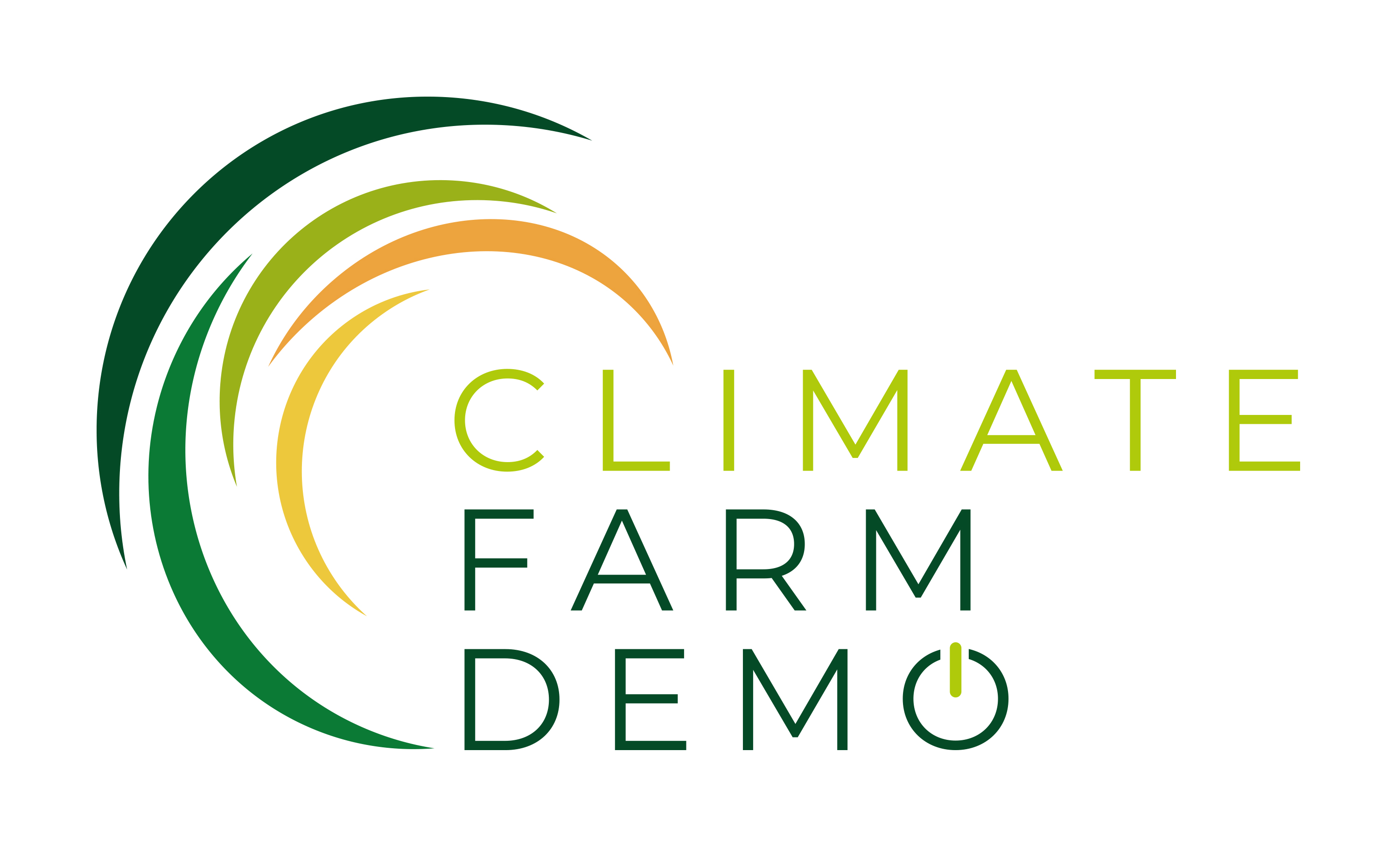Food, Agriculture and Climate at COP28 – and beyond
- Publication
- Citation
Cox, Anthony and Ken Ash 2023: Food, agriculture and climate at COP28 – and beyond. Policy Brief. Berlin: Ecologic Institute.
As governments engage in final preparations for COP28 in Dubai, the United Arab Emirates (UAE) Presidency continues to prioritise its Food Systems and Agriculture Agenda. The aim to have governments at COP28 commit to integrating sustainable agriculture in their national climate agendas is welcome, timely and essential. But, it would need to be part of a larger effort to modernise agricultural policy, particularly with respect to agricultural subsidies and the role of private sector collaboration. This policy brief highlights priority areas in moving from political declarations to concrete action.
Main findings or recommendations
- Agricultural policies that distort farm production decisions and trade flows and can have a negative effect on both climate and the broader environment should be phased out. Alternative measures should be introduced to support innovation and sustainable practices across the food supply chain.
- The private sector can play a greater role in delivering better food, agriculture, climate, and environment outcomes. The widespread adoption of regenerative agriculture will not be possible without strong collaboration across the public and private sectors and civil society.
- Building on progress at COP28, there will be a need to accelerate multilateral efforts to drive a comprehensive modernisation of current food and agriculture policies. This should include improving the awareness and understanding of available information; investing in internationally comparable metrics to assess impacts; and building a coalition of stakeholders in support of evidence-based reform – preferably at the WTO.
The policy brief is based on the report "Desktop Analysis of Agricultural Subsidies and Environmental Impacts" prepared in 2022 for the Australian Department of Foreign Affairs and Trade, supplemented with some further reflections on the role of the private sector in reshaping agriculture with respect to climate and the environment.





